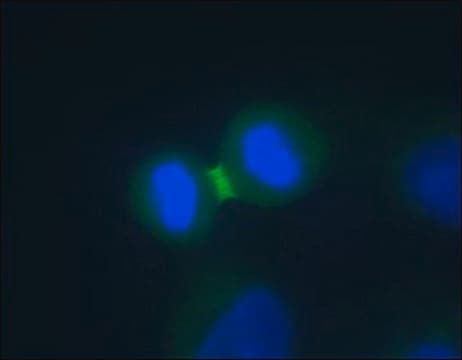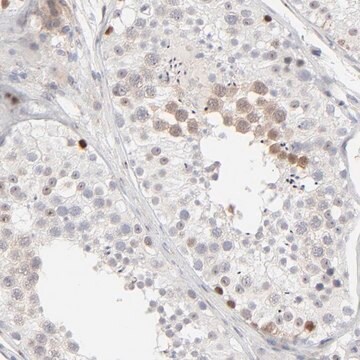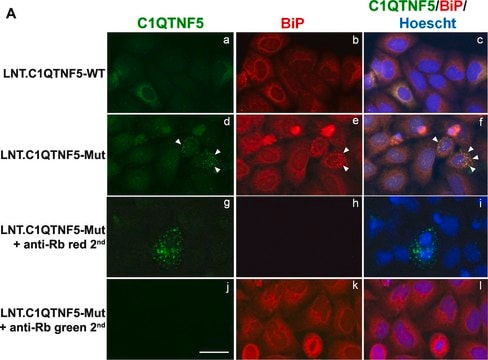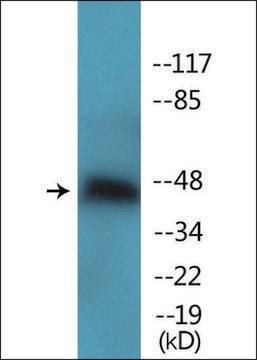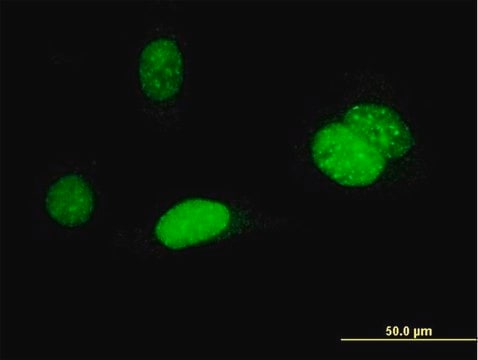A1231
Anti-Aurora-A Kinase antibody, Mouse monoclonal
clone 35C1, purified from hybridoma cell culture
Synonym(s):
Monoclonal Anti-Aurora-A Kinase, Monoclonal Anti-Aurora-A Kinase antibody produced in mouse, Anti-ARK-1, Anti-AURORA2, Anti-Aurora-related kinase 1, Anti-BTAK, Anti-STK15, Anti-STK6, Anti-Serine/threonine protein kinase 15
About This Item
Recommended Products
biological source
mouse
Quality Level
recombinant
expressed in mouse cell line
conjugate
unconjugated
antibody form
purified immunoglobulin
antibody product type
primary antibodies
clone
35C1, monoclonal
form
PBS solution
mol wt
antigen ~46 kDa
species reactivity
human, mouse
concentration
~2 mg/mL
technique(s)
immunocytochemistry: suitable
immunoprecipitation (IP): suitable
indirect ELISA: suitable
western blot: 0.25-0.5 μg/mL using HeLa total cell extract
isotype
IgG2b
UniProt accession no.
shipped in
dry ice
storage temp.
−20°C
target post-translational modification
unmodified
Gene Information
human ... AURKA(6790) , AURKA(6790)
mouse ... Aurka(20878) , Aurka(20878)
Looking for similar products? Visit Product Comparison Guide
Related Categories
General description
Specificity
Immunogen
Application
Biochem/physiol Actions
Physical form
Disclaimer
Not finding the right product?
Try our Product Selector Tool.
related product
Storage Class Code
10 - Combustible liquids
WGK
WGK 3
Flash Point(F)
Not applicable
Flash Point(C)
Not applicable
Personal Protective Equipment
Certificates of Analysis (COA)
Search for Certificates of Analysis (COA) by entering the products Lot/Batch Number. Lot and Batch Numbers can be found on a product’s label following the words ‘Lot’ or ‘Batch’.
Already Own This Product?
Find documentation for the products that you have recently purchased in the Document Library.
Our team of scientists has experience in all areas of research including Life Science, Material Science, Chemical Synthesis, Chromatography, Analytical and many others.
Contact Technical Service